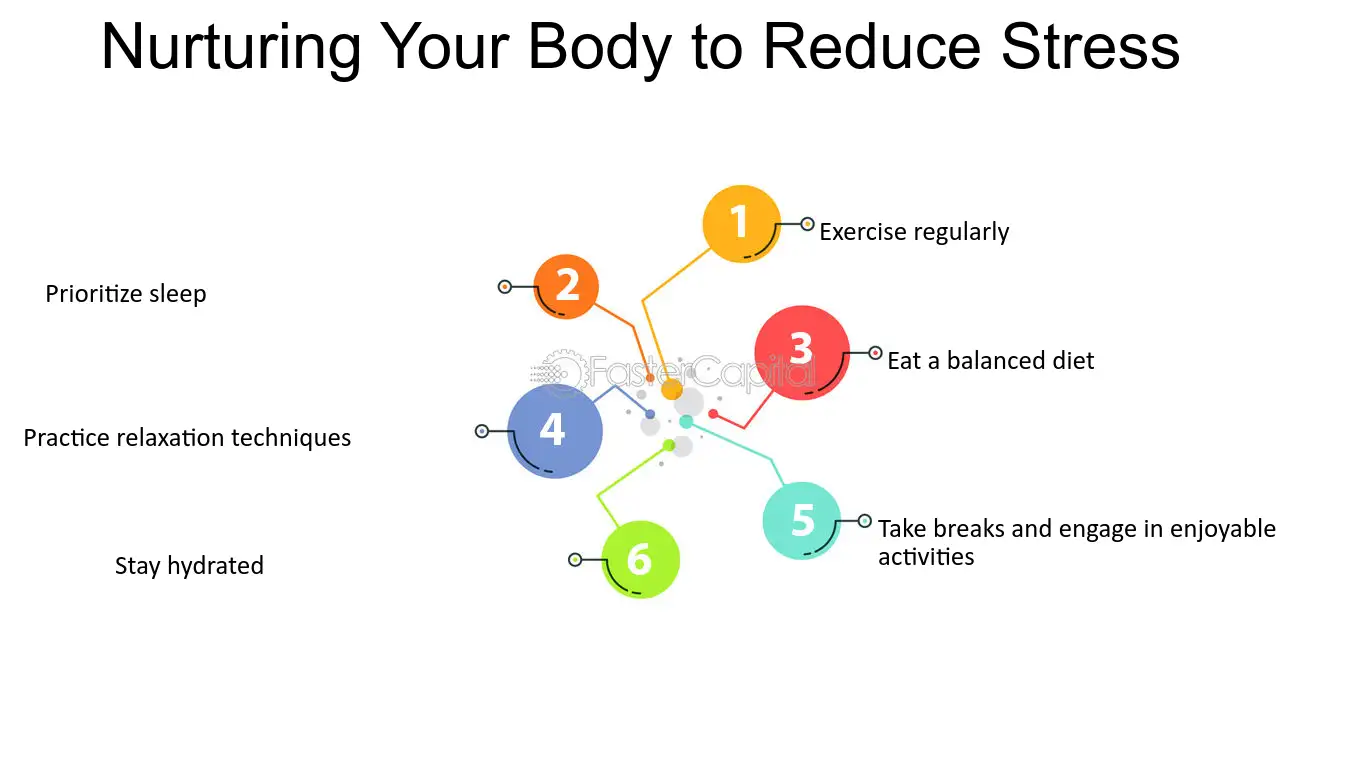In today’s fast-paced world, stress has become a common part of life for many people. From work deadlines to personal responsibilities, it’s easy to feel overwhelmed by the demands of daily life.
However, by practicing self-care, we can effectively manage stress and promote overall well-being. In this article, we’ll explore some simple yet effective self-care strategies for stress relief that you can incorporate into your daily routine.
Prioritize Sleep:
Getting enough sleep is essential for managing stress and promoting overall well-being. Aim for seven to nine hours of quality sleep each night.
Establish a relaxing bedtime routine, such as taking a warm bath, reading a book, or practicing relaxation techniques like deep breathing or meditation.
Create a comfortable sleep environment by keeping your bedroom dark, quiet, and cool, and avoid caffeine and electronic devices before bed.
Eat Well:
Eating a healthy, balanced diet is important for managing stress and promoting overall health and well-being. Focus on eating a variety of nutrient-rich foods, including fruits, vegetables, whole grains, lean proteins, and healthy fats.
Avoid excessive caffeine, sugar, and processed foods, which can contribute to feelings of stress and anxiety. Stay hydrated by drinking plenty of water throughout the day, and try to eat regular, balanced meals to keep your energy levels stable.
Stay Active:
Regular physical activity is a powerful way to reduce stress and promote overall well-being. Aim for at least 30 minutes of moderate exercise most days of the week.
Find activities you enjoy, whether it’s walking, jogging, cycling, swimming, or dancing, and make them a regular part of your routine.
Exercise releases endorphins, which are natural stress-fighters and mood boosters, helping to reduce feelings of stress and promote a sense of well-being.
Practice Relaxation Techniques:
Incorporating relaxation techniques into your daily routine can help reduce stress and promote relaxation. Try deep breathing exercises, progressive muscle relaxation, guided imagery, or mindfulness meditation to calm your mind and body.
Find a quiet, comfortable place to practice these techniques, and set aside a few minutes each day to relax and unwind. Regular practice can help you better cope with stress and promote a greater sense of well-being.
Set Boundaries:
Setting boundaries is an important aspect of self-care and stress management. Learn to say no to things that drain your energy or cause you stress.
Be clear about your limits and communicate them to others. Prioritize your own needs and well-being, and don’t feel guilty about taking time for yourself.
Setting boundaries can help reduce feelings of overwhelm and prevent burnout, allowing you to better cope with stress and enjoy a greater sense of balance and peace.
Practice Gratitude:
Practicing gratitude is a simple yet powerful way to reduce stress and promote a positive outlook on life. Take time each day to reflect on the things you’re grateful for, whether it’s your health, your loved ones, or simple pleasures like a beautiful sunset or a delicious meal. Keep a gratitude journal and write down three things you’re thankful for each day.
Cultivating an attitude of gratitude can help shift your focus from negative to positive, even during challenging times.
Connect with Others:
Social support is essential for managing stress and promoting overall well-being. Make time to connect with friends, family, and loved ones regularly, whether it’s through phone calls, video chats, or in-person visits.
Share your thoughts and feelings with others, and don’t hesitate to ask for help or support when you need it.
Spending time with supportive people can help reduce stress, improve your mood, and promote a sense of connection and belonging.
Conclusion
Self-care is essential for managing stress and promoting overall well-being. By prioritizing sleep, eating well, staying active, practicing relaxation techniques, setting boundaries, practicing gratitude, and connecting with others, you can effectively manage stress and enjoy a greater sense of balance, peace, and well-being in your life.
Remember to prioritize your own needs and well-being, and don’t hesitate to seek help or support when you need it. Your health and happiness are worth it.

Leave feedback about this